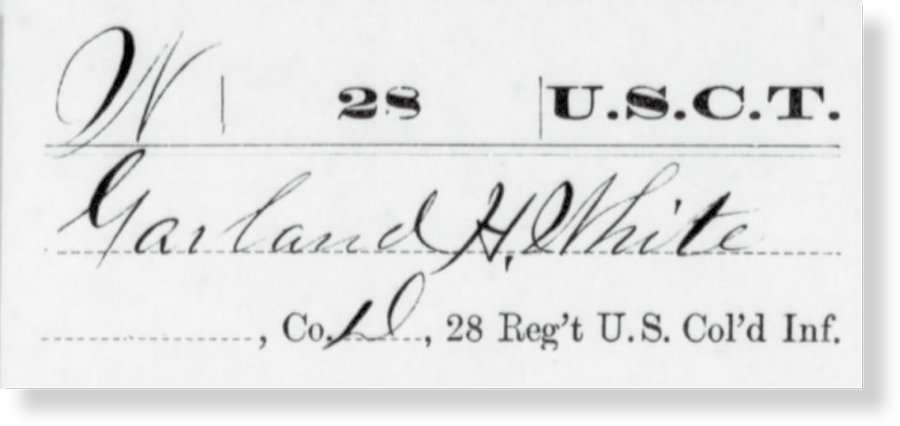

Garland H. White had other ideas. He was stolen from his mother Nancy at about age 10, and sold into Toombs’ possession. When Toombs became a U.S. House Representative in 1844, White accompanied him to Washington, D.C. White attempted to escape in 1850, but was soon caught and returned to Toombs. Toombs had the nerve to return with White to D.C. when elected to the Senate in 1852.
White was compliant on the surface, but at least two things kept him hungry for freedom. His training moved him to preach for the African Methodist Episcopal (AME) Church in Washington. Further, his acquaintance with abolitionist Senator William Seward, whose D.C. residence was two doors down from Toombs, piqued his drive for freedom. The AME’s liberationist gospel, Seward’s antislavery politics, and perhaps practical help from both, emboldened White to successfully escape to Canada in 1859.
White came back to the U.S. during the Civil War and joined Indiana’s 28th Regiment, becoming the state’s first African American officer. Although serving as a chaplain, he knew that securing freedom meant facing swords, torches, and more.
Stationed as far away as Corpus Christi, Texas, in 1864, the 28th marched to seize Richmond, Virginia in the spring of 1865. Among the churning sea of emancipated people seeking reunion with family members was Nancy. Garland’s mother finally got her son back! His risk was worth the reward!
Richmond’s emancipatory moment whetted White’s appetite for a global freedom movement: “Yes, we will follow this race of men in search of Liberty through the whole Island of Cuba” (“Protest Against Cuban Slavery,” Christian Recorder, Nov. 8, 1877).